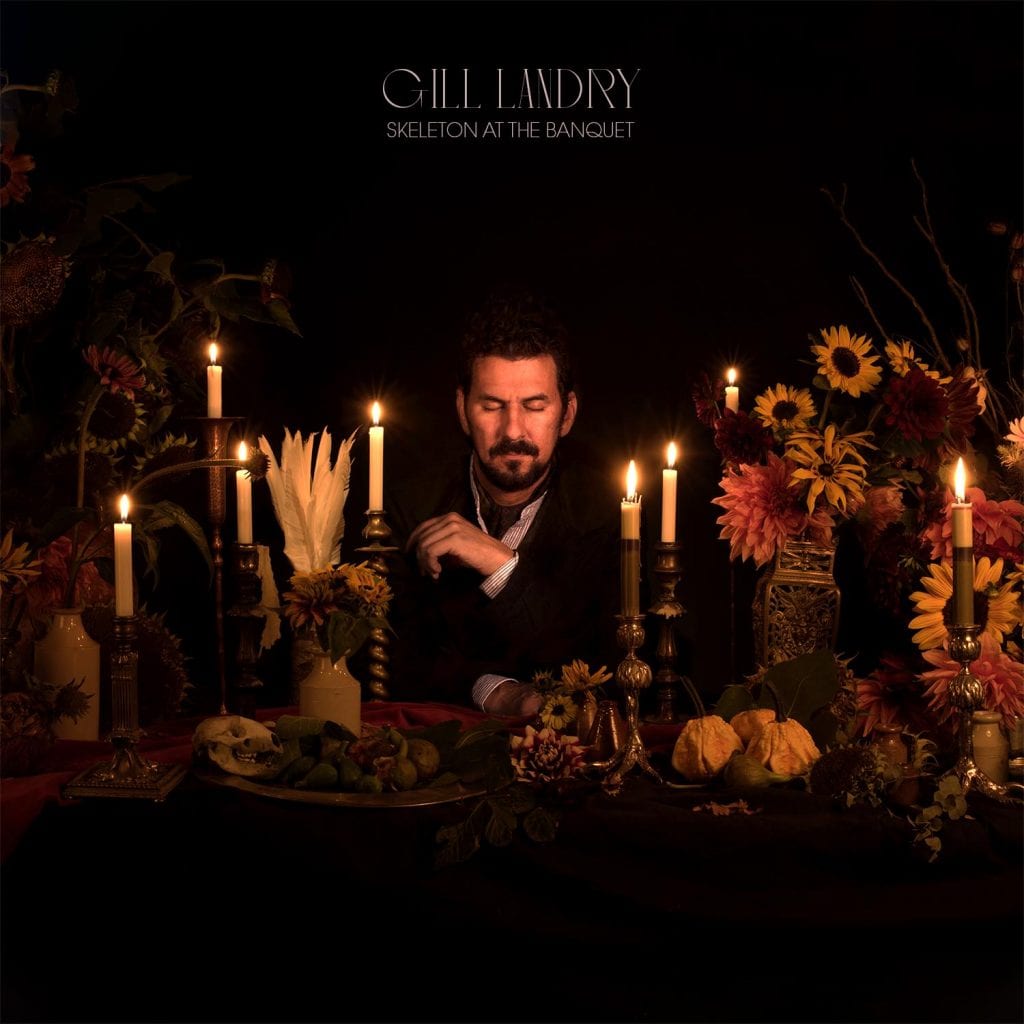Gill Landry’s ‘Skeleton at the Banquet’ Tells a Dark, Conflicted Story

Gill Landry wrote his newest batch of songs, Skeleton at the Banquet, while spending a summer in small-town Western France. In a press release, he says this vantage point gave him a better perspective on the subject matter for his album, which is “a series of reflections and thoughts on the collective hallucination that is America.”
Despite the physical space between the songwriter and his subject, Landry doesn’t take a zoomed-out view; in fact, many of the songs look at big problems through the intimate, personal lens of ill-fated relationships. Writ large, the microaggressions and mini-betrayals that people commit against each other spell out a much bigger conflict. Combine this with the Old Crow Medicine Show alum’s macabre baritone, and Skeleton at the Banquet turns out to be a pretty dark effort.
The album’s brooding, ambivalent characters search in vain for a soft place to land. There are no easy comforts here, save for those in our memories (such as in “The Refuge of Your Arms,” which looks wistfully back to simpler times and more trustworthy relationships.) In “The Place They Call Home,” Landry walks a city’s streets (a nod to his early days as a New Orleans busker), finding only pain and suffering in the faces of the people he sees.
“Nobody’s Coming,” perhaps the most overtly political track on the album, reflects on a troubled community that realizes, once and for all, no savior is coming to rescue them from their plight. Finally, they are forced to face the fact that they need to take accountability for their actions and work together to solve their problems.
If there are any love songs on Skeleton at the Banquet, they might more accurately be described as “un-love” songs. In “Angeline,” the narrator’s feelings toward his partner are closer to “resigned acceptance” than any kind of true feeling. “I Love You Too,” the project’s first single, is even more brutal, because instead of being upfront about not loving his partner, he tries to match the feelings that they have for him — and ends up telling a painful lie. What starts out as a decision to take the path of least resistance turns out to be a betrayal.
Though Landry’s lyrics often take center stage on this album, an intricately crafted instrumental backdrop is also a big part of the story, such as a violin solo on “Nobody’s Coming” that feels more like a duet partner than an accompaniment. Ever since his days in instrument-focused OCMS, Landry has had dynamic instrumentation built into his musical DNA. Here, the musical stylings create a soft, soothing world, allowing the lyrical part of the story to be even bleaker and starker by contrast.


